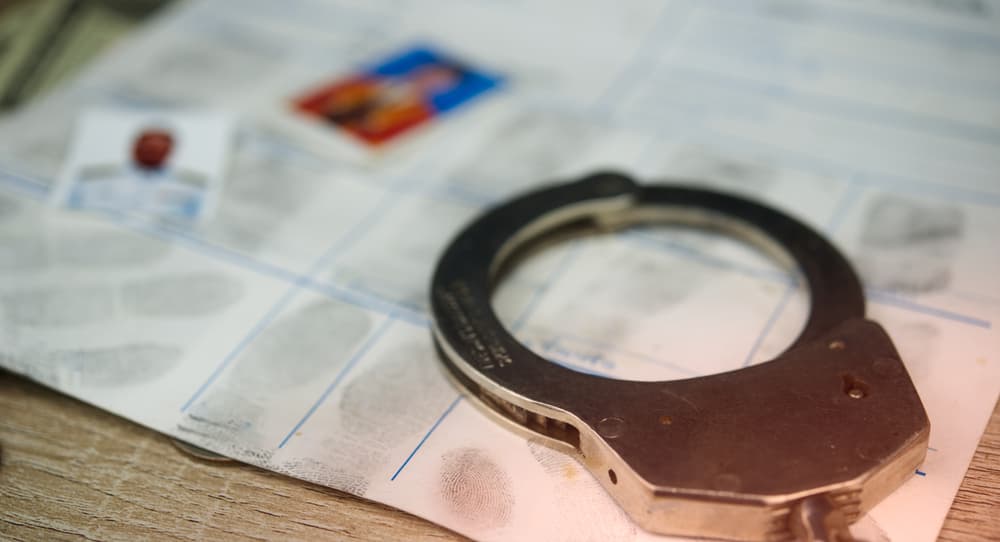Being accused of illegal drug possession can have severe and life-changing consequences. The penalties for drug-related offenses range from fines and probation to lengthy prison sentences and exorbitant fines.
If you've been arrested for possession of illegal drugs, it's vital to contact an experienced drug crime lawyer right away.
Schedule Your Free Consultation
Retain Legal Services to Ensure Better Results
These charges can significantly impact various aspects of your life, including employment opportunities, housing options, and future prospects. That’s why you can’t face these charges by yourself. It pays--literally--to contact a defense lawyer to ensure better results with your case.
Types of Drug Offenses
There are two primary categories of drug offenses that individuals might face:
Simple Possession
Simple possession charges apply when an individual is found to be in possession of a controlled substance. The severity of this charge can vary significantly depending on several factors, including the type of drug involved and the quantity found.
Possession with Intent to Manufacture, Sell, or Deliver (PWIMSD)

PWIMSD charges are considerably more serious than simple possession. These charges indicate that law enforcement believes the drugs in question were not merely for personal use but were intended for sale or distribution.
Factors that might lead to a PWIMSD charge include possessing large quantities of a drug, using packaging materials or scales, or being caught in the act of a drug transaction. PWIMSD charges are typically felonies and carry much harsher penalties than simple possession.
Understanding Penalties for Drug Charges
The penalties for drug charges can vary widely based on several key factors. It’s important to understand these variables as they can significantly impact the potential consequences of a drug offense:
Drug Type
The Schedule of the drug involved plays a major role in determining penalties. As mentioned earlier, Schedule I and II drugs carry the harshest penalties due to their high potential for abuse and limited medical applications.
Offenses involving these substances are more likely to result in felony charges, even for simple possession in some cases. Again, and in contrast, charges involving Schedule V and VI drugs are often treated as misdemeanors, reflecting their lower risk profile and more accepted medical uses.
Drug Quantity
The amount of the controlled substance found is another critical factor in determining charges and potential penalties. The law establishes specific weight thresholds for each drug schedule. Exceeding these thresholds can elevate a charge from simple possession to a more serious offense, such as PWIMSD charges.
For example, possessing more than a certain amount of cocaine or methamphetamine can automatically result in trafficking charges, which carry mandatory minimum prison sentences.
Prior Offenses
An individual’s criminal history, especially prior drug convictions, can significantly impact the severity of current charges. Repeat offenders often face enhanced penalties, with each subsequent offense potentially carrying longer prison terms and higher fines.
This escalating scale of punishment underscores the importance of mounting a solid defense to avoid future legal troubles.
Penalty Ranges
While the exact penalties can vary based on the unique circumstances of each case, here’s a general overview of potential consequences for drug offenses:
For Schedule I and II drugs, simple possession can range from a Class 1 misdemeanor (for small amounts) to a Class I felony. Misdemeanor charges might result in up to 120 days in jail, while felony charges can lead to several months or even years.
PWIMSD charges involving these substances are typically Class H felonies, carrying potential prison sentences of 4 to 25 months for first-time offenders.
Offenses involving Schedule III and IV drugs are often treated somewhat less severely. Simple possession is usually a misdemeanor, potentially resulting in fines and up to 120 days in jail. However, PWIMSD charges for these substances can still result in felony convictions, with prison terms varying based on the specific circumstances and the offender’s criminal history.
For Schedule V drugs, possession is generally charged as a Class 2 misdemeanor. It can result in up to 60 days in jail and fines, though first-time offenders might be eligible for probation or alternative sentencing options.
Schedule VI drug offenses, which often involve marijuana, are typically treated as Class 3 misdemeanors for small amounts. It might result in fines and up to 20 days in jail, though many first-time offenders receive probation or deferred prosecution agreements.
Schedule Your Free Consultation
The Role of a Drug Defense Lawyer
Facing drug charges can be an overwhelming and frightening experience. The intricacies of drug laws, the potential for severe penalties, and the long-lasting impact on your life make it essential to have skilled legal representation. An experienced drug defense lawyer can be your strongest advocate throughout the legal process, providing invaluable assistance in several key areas:
Comprehensive Case Evaluation
On taking your case, a skilled drug defense attorney will thoroughly review all the details surrounding your arrest and charges. It includes examining police reports, analyzing the evidence against you, and identifying potential weaknesses in the prosecution’s case. This comprehensive evaluation allows your attorney to develop the most effective defense strategy tailored to your situation and needs.
Negotiating with Prosecutors
One of the most valuable services a drug defense lawyer can provide is their ability to negotiate with prosecutors. In many cases, it may be possible to reach a plea deal, especially for first-time offenders or those charged with less serious offenses. This deal can result in reduced charges or alternative sentencing options.
Your lawyer can advocate for options such as drug treatment programs, probation, or deferred prosecution agreements that can help you avoid the most severe penalties and potentially keep a conviction off your record.
Challenging the Charges
A skilled defense attorney will scrutinize every aspect of your case to identify potential flaws or constitutional violations. It might include challenging the legality of the search that led to the discovery of drugs, questioning the chain of custody for evidence, or disputing the accuracy of field tests used to identify substances.
By filing motions to suppress evidence or dismiss charges based on these issues, your lawyer can significantly strengthen your defense and potentially have the charges reduced or dismissed entirely.
Courtroom Representation

If your case proceeds to trial, having an experienced drug defense lawyer by your side is a priority. Your attorney will present your defense, cross-examine prosecution witnesses, and argue to the judge or jury on your behalf.
They will work to create reasonable doubt about your guilt and challenge the prosecution’s evidence at every turn. Even if a conviction seems likely, a skilled lawyer can argue for more lenient sentencing, potentially helping you avoid the harshest penalties.
Reviewing Sentencing Options
In the event of a conviction, your lawyer’s role remains vital. They can help you understand the various sentencing options available and advocate for alternatives to incarceration when reasonable. It might include arguing for participation in drug treatment programs, community service, or other rehabilitative options - any of which focus on addressing underlying substance abuse issues rather than purely punitive measures.
Long-Term Considerations
Beyond the immediate legal proceedings, a good drug defense lawyer will also consider the long-term implications of your case. They can advise you on the potential impact of a conviction on your future employment prospects, housing options, and other areas of your life.
In some cases, they can help you explore options for expungement or record sealing down the line, helping to mitigate the long-term consequences of a drug charge and conviction.
Contact a Defense Lawyer If You’ve Been Charged with the Possession, Distribution, or Trafficking of Illegal Drugs
If you’ve been arrested for possessing, trafficking, or distributing illegal drugs, you need to contact a criminal defense attorney who is skilled in drug cases. Don’t bypass this type of legal support. Contact a lawyer right away.